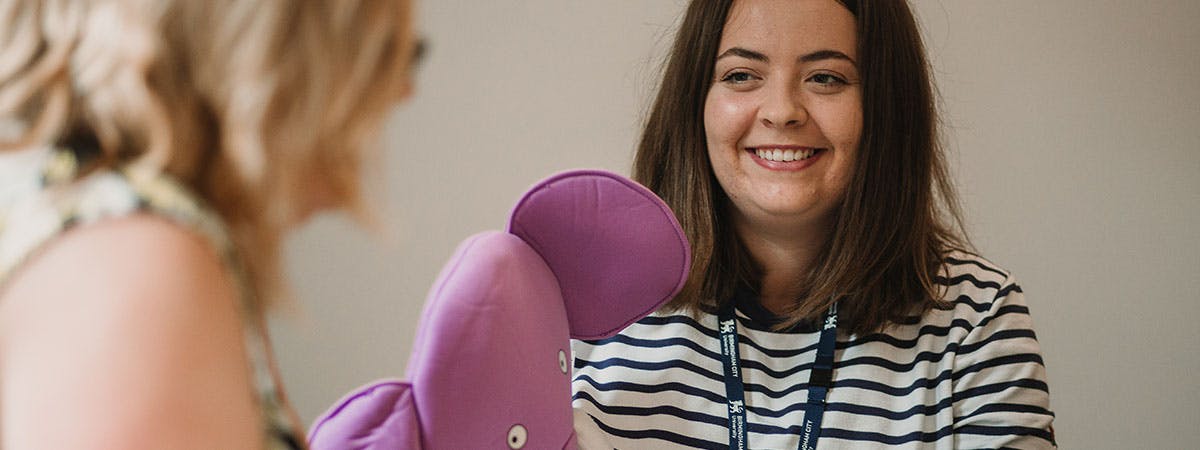If you’re interested in one of our Childhood, Youth and Community courses, we’ve compiled a list of frequently asked questions about our courses to help you learn more, and think about which course might be right for you.

What are the entry requirements?
If you’re looking to find the entry requirements of any of our Childhood, Youth and Community courses, please visit the course pages:
What can I do with my degree?
The answer is, anything! Our childhood, youth and community degrees covers the foundations that someone would need to go on to a career in education, community or youth work. For those interested in education and teaching, it sets students up perfectly to apply for a PGCE to become a qualified teacher, but it also opens up opportunities for wider roles in education such as support workers, education officers and policy advisors. Those interested in community or social work can go on to further study to enter the social work profession. And as with other degrees, students can go on to apply for graduate schemes in a whole range of areas.
For Early Childhood Studies, if you have your Level 3 Early Years Educator qualification (you can work towards this while doing your degree), you may choose to be a graduate leader in an early years setting. You may also choose to work with children and families as a family support worker, children’s centre leader, curriculum advisor, play worker or inclusion/portage worker. Or you could consider further study to become a play therapist, teacher or child psychologist.
What will I be studying?
The answer, again, is everything! Our courses are unique in that they draw on a wide range of fields, which means during the course of your degree, you will study subjects including psychology, sociology, history, philosophy and linguistics, amongst many others. These are wide and varied degrees, and although content is applied to education in a variety of contexts, you will leave having obtained a wealth of knowledge in these areas. We look at education and society from cradle to grave, taking the approach that education never stops. So we focus on babies and the early years, primary education, secondary education, post-compulsory education and beyond into lifelong learning in both a national and international context, and you will have lots of opportunities to develop your understanding of how to support in these areas.
What are the benefits of these courses?
You’ll get a really solid basis with which to go on and be a practising professional, an excellent range of knowledge relating to the most important aspects of education and society, and an opportunity to develop your personal and professional skills along the way. You will work with an incredibly supportive team, who will help you to develop your confidence, your understanding and your professionalism.
Childhood, Youth & Community Courses at BCU
Want to know more about the courses we offer at BCU? Check out our search page and find the right course for you.
How are the courses structured?
Each course will be structured differently, with a variety of modules, optional modules and placements. If you’re interested in understanding the course in-depth, please visit the ‘Course in Depth’ tab on the below pages:
Are there any exams on the course?
No, you will not have to do any exams on these courses.
Instead, we have a wide range of assessment methods to suit the needs of all learners. Our assessment methods include: reports, essays, Mahara e-portfolio page, group presentations, and posters. You will also complete a research project during your third year of study.
Will I do any placements?
Yes, you will undertake placements during your first and second years. Your first year placement is chosen for you and will be local to your term-time address. Most students choose their own second year placement based on their interests. The placement experiences give you the opportunity to build your professional skills in a real environment, as well as get to know what type of career you might want to pursue after graduation.
What support is offered to students?
You will have a personal tutor who you will meet in your first week at university, and who is available for academic and pastoral support throughout your course. In addition, support with accommodation, wellbeing, finance, and academic study is available, as is support for disabled students and those students with learning needs.